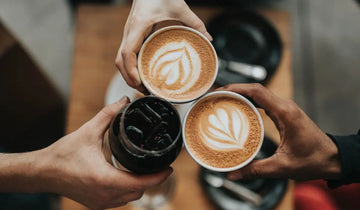Coffee is one of the most consumed beverages around the world and it is not by chance. Its popularity is largely due to its ability to make us feel more energized, but also to the fact that it brings people together, stimulates conversation, keeps you awake, and simply because it is a small, affordable pleasure.
There is a whole culture surrounding coffee, but it also has a long history of debate about its benefits and dangers.
Want to learn more about coffee? Keep reading!





